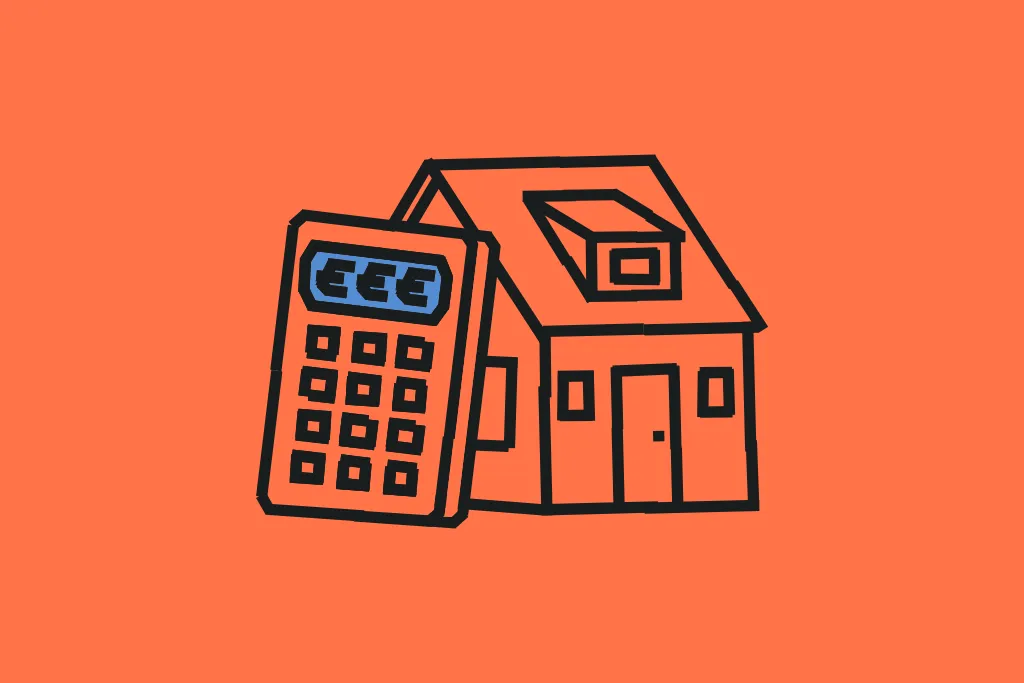What is the cost of withdrawing €10,000 in excess value?
Want to withdraw €10,000 excess value on your home? Then you want to know what it will cost. With a mortgage, you pay monthly interest and often repayment. You also pay one-time costs, such as for advice, valuation and the notary. Below you can see the approximate cost of withdrawing €10,000 via an extra mortgage or by increasing your existing mortgage.
Expense summary at €10,000 excess value withdrawal
| Cost item | Amount |
|---|---|
| Gross monthly expenses | €54 |
| Net monthly expenses | €37 |
| Total interest (30 years) | €18.000 |
| Mortgage Advice | €2000 - €3500 |
| Appraisal fees | €850 |
| Notary fees | €400 - €800 |
| Closing costs | ± €250 |
| Total one-time costs | €3250 - €5150 |
Your total repayment then comes out to about €28,000 for a drawn amount of €10,000. That seems a lot, but it's because of the long term and low monthly payments. You pay off quietly, without a big strain on your financial space.
Some of the additional costs are tax deductible, such as the cost of a mortgage broker and interest. You can deduct the mortgage interest as long as you make repayments. That lowers your net monthly burden and total costs.
Do you want to know what withdrawing surplus value will cost in your situation? Then request a free consultation with an independent mortgage advisor. This will give you immediate insight into the costs, conditions and the best option for your financial situation.
{{cta}}
Monthly expenses when withdrawing €10,000 in excess value
If you withdraw €10,000 in excess equity, you'll want to know exactly what you'll pay each month. Whether you use it for a remodel, savings or a buffer: your monthly expenses determine whether it fits your situation. The amount depends on your interest rate, mortgage type and whether you're repaying.
Monthly charges at 30-year term and 5% interest rate
With an annuity mortgage, you pay interest and principal. Your mortgage debt decreases monthly and you build up equity. With an interest-only mortgage, you pay only interest. Your monthly burden remains lower, but your debt remains.
What if your interest rate is different?
The interest rate on your mortgage directly affects your costs. Compare:
- 4% interest → €48 gross per month
- 6% interest → €60 gross per month
Do you choose a short fixed-interest period? Then the interest rate is often lower, but you have less security. Have a financial advisor help you think about what suits your current mortgage and your future plans.
What else determines your monthly burden?
In addition to interest rates, your mortgage burden depends on these factors:
- Your current home value and remaining mortgage debt
- Whether you choose a new mortgage or increase your existing mortgage
- Whether you take out a second mortgage
- Your income and financial situation
- The purpose for which you want to use the surplus value
In all cases, you will face additional monthly expenses. Especially if you opt for repayment instead of just interest. Even with a small amount such as €10,000, it is smart to look carefully at your mortgage type and surplus value. That way you can be sure that the loan fits your financial space.

One-time fee when withdrawing €10,000 excess value
In addition to the monthly charges, you also face one-time fees. You only pay these when you take out an additional mortgage, increase your existing mortgage, or arrange a second mortgage. After that, you don't have to worry about it anymore.
These costs are part of the process of recording your excess value. Your surplus value arises because your home is worth more than your mortgage debt. If you want to use that amount, you must meet certain conditions. These include sufficient income, home value and an appropriate mortgage amount.
Average cost €10,000 excess value withdrawal
Some of these additional costs are deductible. For example, you can deduct consulting fees and mortgage interest on your tax return. As a result, the net costs are much lower in many cases.

Is withdrawing surplus value wise?
Withdrawing a relatively small amount from your surplus value can be smart. For example, if you are just looking for some financial space. Consider supplementing your buffer, making your home more sustainable or small renovations. But even with this amount, you have to deal with monthly costs and considerations.
The table below shows you when withdrawing €10,000 is usually a good idea and when it's better to wait a little longer:
Still doubting whether withdrawing €10,000 in surplus value is a smart choice? Read in this article when it's wise to withdraw your surplus value and when it's better not to.

Cost excess value inclusion in other amounts
Don't want to withdraw exactly €10,000 of excess value, but the entire excess value or some other amount? Then of course you want to know what that means for your monthly expenses and one-time costs. Below you can see an overview of the costs for other amounts of surplus value, so you can easily compare:
- What does €20,000 excess value withdrawal cost?
- What does €30,000 excess value withdrawal cost?
- What does €40,000 excess value withdrawal cost?
- What does €50,000 excess value withdrawal cost?
- What does €100,000 excess value withdrawal cost?
Not sure how much surplus value you can withdraw? Or what's the smartest thing to do in your situation? Schedule a free consultation with an independent mortgage advisor. You'll get immediate insight into your options, monthly costs and which type of mortgage fits your situation.

Here's how to calculate home equity
You can withdraw €10,000 only if you have enough excess value on your home. This excess value arises because your current home is worth more than your mortgage debt. So the amount you can withdraw depends on the market value of your home and your outstanding mortgage.
You calculate it simply: the current value of your home minus your mortgage debt.
Your home is worth €320,000. You still have €310,000 of mortgage left.
320,000 - 310,000 = €10,000 excess value
You can withdraw this excess value, if your income and financial situation allow.
Want to know if this is possible in your situation? Read how to calculate your excess value or schedule a free consultation with an independent mortgage advisor to see what's best for your situation.

Frequently asked questions €10,000 home equity surplus
When you think about withdrawing surplus value, you usually have a number of questions. How does withdrawing surplus value work, and what exactly do you pay per month? In the frequently asked questions below, we provide clear answers so you know what you're getting into.
What does €10,000 surplus value withdrawal cost per month?
With a €10,000 mortgage, you pay about €54 gross per month. Net that comes down to about €37, depending on your income and whether you can deduct the mortgage interest. So you will face higher monthly costs, although they will remain limited. You pay interest and repayment. As a result, the debt on your mortgage decreases and you build up equity.
Is €10,000 excess value withdrawal wise?
It depends on your plans. If you use it for remodeling, savings or energy conservation, it can be smart. The monthly costs stay low and your interest rate is usually lower than with a personal loan. Get good advice on what suits your financial situation.
Can I withdraw €10,000 through a second mortgage?
Yes, you can. But not every provider allows a second mortgage at a low amount. Sometimes it's better to increase your existing mortgage or take out a new loan. What is the best option for you depends on your home value, income and lender's terms and conditions.
Can I withdraw €10,000 surplus value redemption-free?
Yes, you can also withdraw €10,000 surplus value through an interest-only mortgage. In that case you only pay interest, for example €42 per month at 5% interest. Your mortgage debt remains in place, because you do not repay anything. This is only allowed if you have sufficient income and home value.
What can you do with €10,000 in excess value?
You can use the surplus value for a variety of purposes. Think of a renovation, making your home more sustainable, or supplementing your savings. Even if you are approaching retirement, it can be nice to have some extra to spend. Some people put it toward the purchase of a new home. What's smart depends on your situation and plans.
What if my house becomes worth less after withdrawing surplus value?
Then you run the risk that your mortgage is higher than your home value. You then fall into a higher risk class, which can cause your mortgage interest rate to rise. This does not happen often, but it is something to take into account with falling house prices. Get good advice if you are in doubt.
Are expenses recording surplus value deductible?
From the excess value, one-time expenses are partially deductible. Consider advisory fees and the interest on your mortgage. You can deduct mortgage interest as long as you use the loan for your own home and pay it off. This way you reduce your net costs when taking out surplus value.

{{vragen}}




